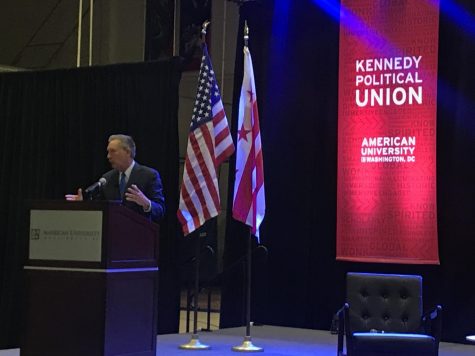Get Serious: Stop Ridiculing the Tea Party
It is time to take the Tea Party seriously. No, really.
Kneejerk ridicule of the Tea Party movement is easy, entertaining and commonplace. But it can no longer be an acceptable reply to a real movement that has penetrated a large segment of the American electorate.
The group is not just a political punchline: Tea Party stalwarts like Rand Paul and Dan Coats will be joining the ranks of Congress in January. Tea Party candidates also defeated establishment Republicans in Alaska, Delaware, New York and New Hampshire primaries. A CBS News/New York Times poll published on Sept. 15th suggested that 19 percent of Americans are supportive, while “as many as 47 percent of registered voters nationwide say they are undecided or haven’t heard enough about the Tea Party movement to have an opinion about it.”
The real question then becomes, why is the movement so popular?
Much of the Tea Party’s appeal comes from its populist image. Everything about the movement radiates democracy, including its platforms, which began as “thousands of ideas” submitted and debated by “thousands of freedom-loving Americans” on the Contract from America website from Sept. 2009 to Jan. 2010. These ideas were then whittled down to the 22 “most viable ideas” by “thousands of grassroots leaders nationwide” before finally being narrowed to 10 through open online voting.
The result is a movement that followers feel speaks for them, even though many of the platforms were approved only by narrow majorities. This amorphousness, unquestioned by voters when couched in such democratic practice, has been essential to the party’s ability to unite such a large and diverse set of people on the American right.
The group’s political outsider status is also appealing. In the wake of the uproar over post-bailout bonuses, pork barrel spending and two major political parties beholden to special interest money, the Tea Party has resonated with many Americans by marketing itself as a fresh face. Sarah Palin synthesized this populist anger and outside-the-Beltway idealism in her speech at a February Tea Party Convention:
“While people on Main Street look for jobs, people on Wall Street, they’re collecting billions and billions in your bailout bonuses. Among the top 17 companies that received your bailout money, 92 percent of the senior officers and directors, they still have their good jobs. And everyday Americans are wondering, where are the consequences for them helping to get us into this worst economic situation since the Great Depression? Where are the consequences?”
Her call for “consequences” speaks to the real uniting factor in the movement: anger. Tea Partiers are angry for a variety of reasons, and it is this mutual emotion that unites them much more than any common gripe about specific policies. This anger is what requires serious attention. Vaunted leftist intellectual Noam Chomsky noted in a recent speech at the University of Wisconsin, “the level of anger and fear is like nothing I can compare in my lifetime.” Chomsky gave a terrifying projection of where Tea Party fervor could potentially lead:
“I’m just old enough to have heard a number of Hitler’s speeches on the radio, and I have a memory of the texture and the tone of the cheering mobs, and I have the dread sense of the dark clouds of fascism gathering [in the United States]. In 1928 the Nazis had less than two percent of the vote. Two years later, millions supported them. The public got tired of the incessant wrangling, and the service to the powerful, and the failure of those in power to deal with their grievances.”
While it appears we are safe, for the moment, from the grip of a fascist regime, it is high time to stop dismissing the Tea Party. Until now, we have failed to consider the roots of the movement. Political strategy has instead focused on how best to silence Tea Partiers.
It is time to explore the foundations of their grievances, unknown though they may be even to Tea Partiers themselves. Tea Parties do not exist when people have good jobs, nor do they exist when government holds power — and profit greedy corporate institutions at a safe distance. Defusing Tea Party anger means developing real solutions to real problems.
Mostly, however, it is time to give the Tea Party the careful consideration for which it calls. It is a movement that is large, angry, well-organized and only growing in momentum. In the words of Chomsky, “Ridiculing the Tea Party shenanigans is a serious error.” •











